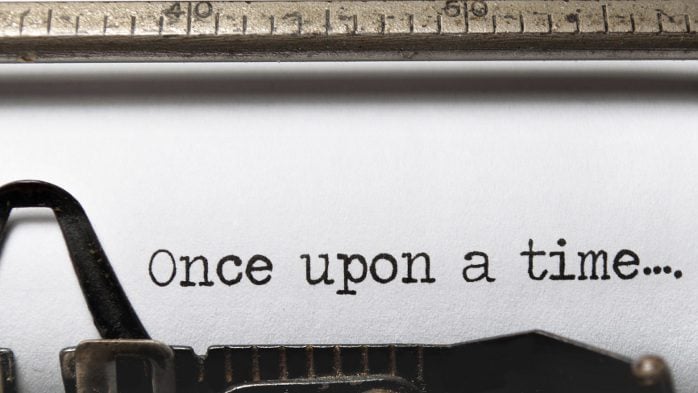Part 1 of a terribly depressing series.
I wish to die a damn good story. I want to carve out for myself a meaningful slice of existence. I want to leave, along with a good-looking corpse, a coherent narrative that says something, not a garble of unconnected life-events fading unresolved into nothingness as the blood dries. I’d like to be a story, and this is more than a daydream of me-as-Sherlock, man-as-protagonist. This is suicide prevention.
The desire for life to be a good story makes the unbearable bearable. The best example of this is in mankind’s most ridiculous response to the presence of human suffering: That’s life, man. C’est la vie. Shit happens.
What an odd sort of solace! We are saying, in essence, “This thing you cannot stand is part of an existence comprised by its nature of things you cannot stand. Your family died? You’ll never love again? That’s what life is. You are living an existence in which families die and hearts get broken, and as such, your current pain was inevitable and will reoccur, as it will for everyone performing this terrifying shuffle-forth. Feel better.”
But — and this is where things get wonderfully bizarre — we can and do find comfort in the fact that particular tragedies are part of an overall thing we call “life.” The pathetically inadequate words will continue to stiffen spines and staunch leaky eyes, for contained however tactlessly and brusquely in the phrase “that’s life” is the consideration of narrative over event, an appeal to story over unconnected fact. It is a zooming out from the part to the whole. Suffering, considered in itself, is unbearable. Considered as a thread woven into the entire fabric of life, it becomes bearable. The tragedy, considers in itself, contains no possibility of comfort. The loved one is dead, the house is destroyed, the child in pain, and nothing is OK. The tragedy you grow from, the tragedy that teaches, in short, the tragedy considered as part of a meaningful narrative stretching towards completion, towards some total meaning which contains your tragedy but is not limited to it — this contains the possibility of comfort. An appeal to the entirety of life comforts a particular evil because even particular evils settle into some sort of sense when placed into a context of other events and better times, as related to a life which is not wholly evil, but rather moves forward to a final meaning. The worse is bearable if it is part of a story we are willing to read to the end.
But though the evil we suffer can be comforted, the evil we do is infinitely, qualitatively worse. I’m speaking of sin, the unspeakable phantasm of modernity, ever-present, ever-denied, ever limited to the ranks of pedophilia and Nazism for the comfort of white people wishing to do nothing at all and simultaneously feel good about it. Sin, that existential fact we try, try, and try again to render a religious concept relegated to the guilty, slut-shamed internal lives of churchgoers — a fact we nevertheless taste the copper of every day. We cannot understand sin unless we understand the desire for life to be a consistent narrative.
For what is sin? Sin is less like a black mark against our names and more like walking into our home to find our family has grown bat wings. It is that which ought not be, dwelling within us by our own perverse permission. It is absurdity. Our sins present themselves as loose-ends, ought-nots that cannot be fit with the content of our existence. Our sins — locked in our memory, our history, our consciences, our relationships, and our entire state of being — are irreconcilable oddities that niggle and gnaw against our lives for the simple fact that they are not of our lives. They are foreign cells, not-me’s within me, absurdities all and nauseating. We do what we hate, we hurt the one’s we love, we indulge the shameful until we cannot feel the shame, and you hardly need me to remind you of the fact. We say we “are not our true selves” when we sin, and this means the following: That which is not our true selves becomes a part of ourselves. Sins are principles of contradiction. We sin, and thereby contain an absence, like hell-bound and miserable doughnuts.
Sin then, is a poorly-written and inexcusable break in the consistency of our existence, one that works directly against our desire for our lives to be, at the end of all things, good stories. Sin is Harry Potter killing himself in the third chapter of the second book, the end. We do what we ought not do, and thereafter live with an absurdity embedded into the flesh of our existence, an ought-not-be, a part that was never supposed to be part of our story — and now is.
No appeal to life is adequate here. No one says c’est la vie to the man who murders his brother. Sin is definitively that which ought not be part of our life story, and thus no consideration of narrative over event will absolve the event. To be in sin is to be without the possibility of a finally meaningful existence. To be in sin is to live an incoherent narrative. To be in sin and to live with past sins is to live a story with loose-ends, a fragmented garble that contains that which ought-not-be and ought-never-have-been. The desire to die a damn good story is impossible to satisfy on the condition of indwelling sin, just as Crime and Punishment could never be the miracle of a narrative that it is if the third chapter contained a disco dance-off between Raskolnikov and Sonya.
Thus, if the desire to die a good story is real, something must be done about sin.













